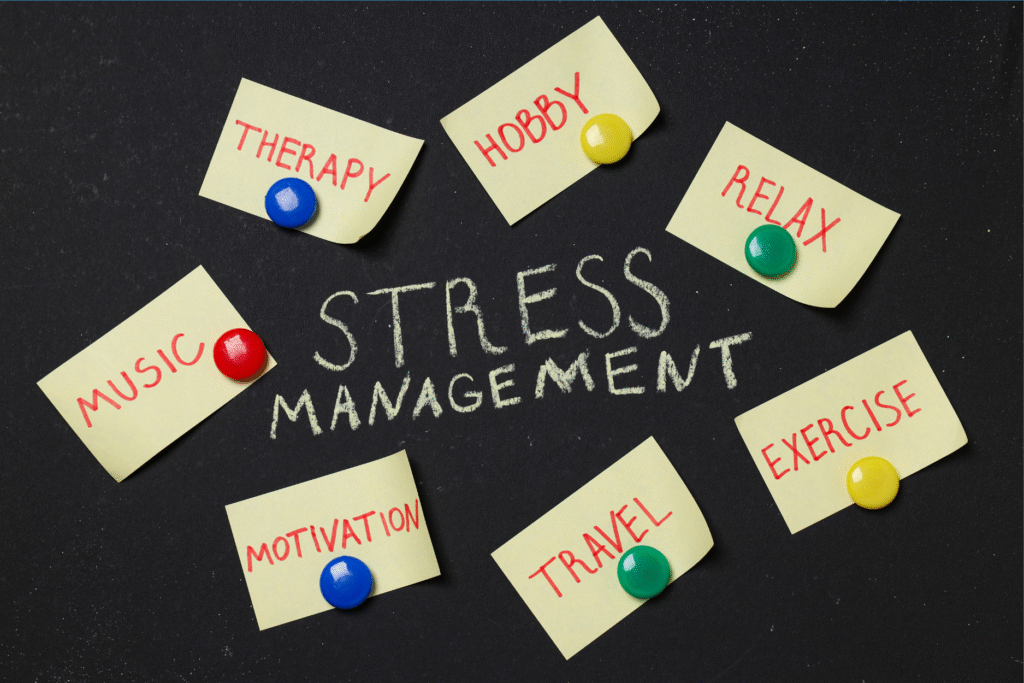How Stress Affects Your Health & Ways to Manage It Naturally

Have you ever felt overwhelmed, exhausted, or irritable after a long day? That’s stress at work! Stress is a natural response to challenges, but when it becomes chronic, it can take a serious and Stress Affects Your Health. From headaches and sleep problems to heart disease and digestive issues, stress affects nearly every part of the body.
But here’s the good news—stress can be managed naturally! In this blog, we’ll explore how stress impacts your health and discuss effective, natural ways to keep it under control.
How Stress Affects Your Health
Stress isn’t just a mental burden; it triggers physical changes in the body. When you experience stress, your body releases hormones like cortisol and adrenaline. While these hormones help in short bursts, prolonged exposure can harm your overall well-being. Let’s break it down:
1. Affects Your Heart
Stress increases heart rate and blood pressure, putting extra strain on your cardiovascular system. Long-term stress raises the risk of heart disease, high blood pressure, and strokes. Chronic stress may also lead to unhealthy habits like smoking, overeating, or excessive alcohol consumption, which further strain the heart.
2. Weakens the Immune System
Ever notice how you tend to get sick when you’re stressed? Chronic stress weakens the immune system, making it harder for your body to fight off infections and illnesses. Stress hormones suppress immune responses, leaving you vulnerable to frequent colds, flu, and even long-term health conditions.
3. Disrupts Sleep Patterns
Stress keeps your mind racing at night, leading to insomnia or poor-quality sleep. A lack of rest affects mood, concentration, and overall health. Poor sleep quality can also weaken immunity, increase irritability, and contribute to long-term health issues like obesity and diabetes.
4. Leads to Digestive Problems
Stress affects gut health, often leading to stomachaches, bloating, acid reflux, or even irritable bowel syndrome (IBS). When under stress, digestion slows down, leading to constipation, or speeds up, causing diarrhea. Unhealthy eating habits triggered by stress further worsen digestive discomfort.
5. Causes Weight Fluctuations
Some people overeat when stressed, while others lose their appetite. Stress hormones can also lead to fat storage, especially around the belly. Chronic stress can slow metabolism, making it harder to lose weight, and increase cravings for unhealthy, high-calorie foods.
6. Impacts Mental Health
Chronic stress contributes to anxiety, depression, and mood swings, making it harder to focus and enjoy life. It can lead to feelings of irritability, frustration, or sadness and, in severe cases, contribute to burnout and emotional exhaustion.
Natural Ways to Manage Stress
The good news? You don’t need medications or expensive therapies to manage stress effectively. Here are some natural and practical ways to relieve stress and improve your overall health:
1. Practice Deep Breathing
Slow, deep breathing signals the brain to relax. Try inhaling deeply through your nose for four seconds, holding for four, and exhaling for six. This simple practice can instantly calm your nervous system and lower blood pressure.
2. Exercise Regularly
Physical activity is a great stress reliever. Whether it’s yoga, jogging, dancing, or a brisk walk, exercise releases endorphins (feel-good hormones) that combat stress. Regular exercise also improves sleep and boosts confidence, reducing overall anxiety levels.
3. Get Enough Sleep
Prioritize 7-9 hours of sleep per night. Establish a bedtime routine, avoid screens before bed, and create a relaxing environment to improve sleep quality. Poor sleep can heighten stress levels, making it crucial to maintain a consistent sleep schedule.
4. Eat a Balanced Diet
Foods rich in vitamins and minerals, such as leafy greens, nuts, berries, and fish, help regulate stress hormones. Avoid excessive caffeine, sugar, and processed foods, which can cause energy crashes and worsen anxiety.
5. Stay Hydrated
Dehydration can increase stress levels. Drink plenty of water throughout the day to keep your body and mind functioning optimally. Herbal teas, like chamomile or green tea, can provide added calming benefits.
6. Spend Time in Nature
Being outdoors reduces stress and boosts mood. A short walk in the park, gardening, or simply sitting in nature can have calming effects. Fresh air and sunlight help regulate serotonin levels, enhancing overall well-being.
7. Try Herbal Remedies
Certain herbs, such as ashwagandha, chamomile, and valerian root, have been shown to reduce stress and promote relaxation. These natural supplements help balance cortisol levels and improve mental clarity.
8. Reduce Screen Time
Constant exposure to social media and negative news can increase anxiety. Take breaks from screens, especially before bedtime, to unwind. Instead, engage in hobbies like reading, drawing, or playing a musical instrument.
9. Practice Mindfulness & Meditation
Mindfulness meditation helps bring your focus to the present moment, reducing worry about the future or past. Even 5-10 minutes a day can make a big difference. Meditation, gratitude journaling, or listening to calming music can significantly lower stress levels.
10. Use Shilajit for Stress Management
Shilajit, a natural resin found in the Himalayas, is rich in minerals and antioxidants. It helps reduce stress, improve brain function, and boost energy levels naturally. Shilajit supports adrenal health, enhancing the body’s ability to cope with daily stressors.
Final Thoughts
Stress is an unavoidable part of life, and Stress Affects Your Health, but it doesn’t have to control you. By making small lifestyle changes and incorporating natural stress-relief techniques, you can improve your health and overall well-being. Remember, taking care of your mind and body is the key to leading a happier and stress-free life!
How do you manage stress naturally? Share your tips in the comments!
